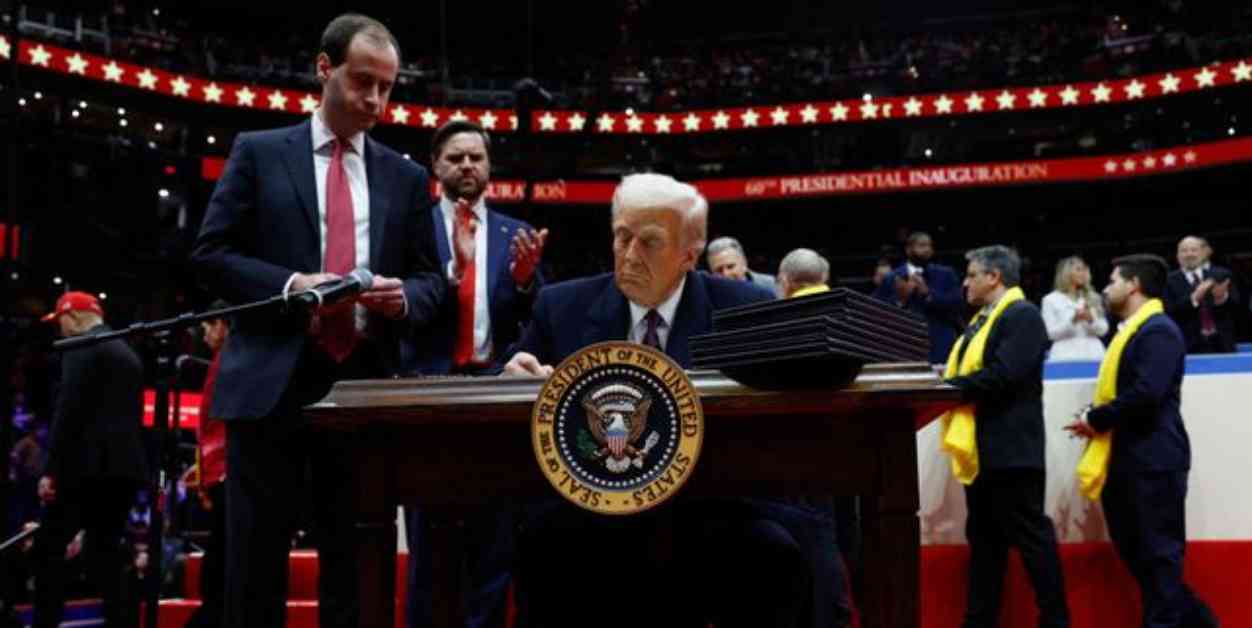President Donald Trump has made a significant move by signing an executive order that effectively ends the EV targets set by President Biden. The previous administration had aimed for electric vehicles (EVs) to make up 50 percent of new cars by 2030, but Trump’s recent order has revoked this goal. This decision has wide-reaching implications for the automotive industry and environmental policies in the United States.
**Implications of Trump’s Executive Order**
President Trump’s executive order not only revokes the non-legally-binding 2021 executive order signed by President Biden but also calls for the elimination of unspent government funds for electric vehicle charging stations. Additionally, it aims to end a waiver that allows states to ban internal-combustion cars by 2035. Trump’s administration is now tasked with working with the Environmental Protection Agency (EPA) to write new rules that align with this executive order.
**Opposition from Automakers**
Interestingly, Trump’s decision goes against the wishes of a coalition of automakers who had previously requested the government to mandate the sale of electric vehicles. These automakers emphasized the importance of stability and predictability in the industry, especially considering the significant investments made in EV research and development. The clash between the administration’s stance and the automotive industry’s desires sets the stage for potential challenges and conflicts in the coming years.
**Uncertainties Surrounding Emissions Standards**
While President Trump’s executive order signals a shift in environmental policies, there are uncertainties regarding the administration’s power to reverse emissions standards through executive action alone. The EPA will likely need to propose new legislation to enforce more stringent emissions rules, which could impact automakers’ production requirements and sales targets in the future.
**Jack Fitzgerald’s Passion for Cars**
In a world dominated by policy changes and industry demands, it’s essential to remember the human element behind every vehicle on the road. Jack Fitzgerald, a car enthusiast with a deep-rooted love for Formula 1, exemplifies the personal connection many individuals have with automobiles. His journey from a college detailer to an auto writer reflects the passion and dedication that drive the automotive community forward. As Jack navigates his own car ownership challenges, he embodies the resilience and enthusiasm shared by countless car enthusiasts worldwide.
Through Jack’s story and the evolving landscape of EV regulations, it becomes clear that the automotive industry is not just about vehicles—it’s about people, passion, and the pursuit of innovation. As policies shift and priorities change, individuals like Jack continue to fuel the industry’s growth and transformation, reminding us that behind every car lies a story waiting to be told.









